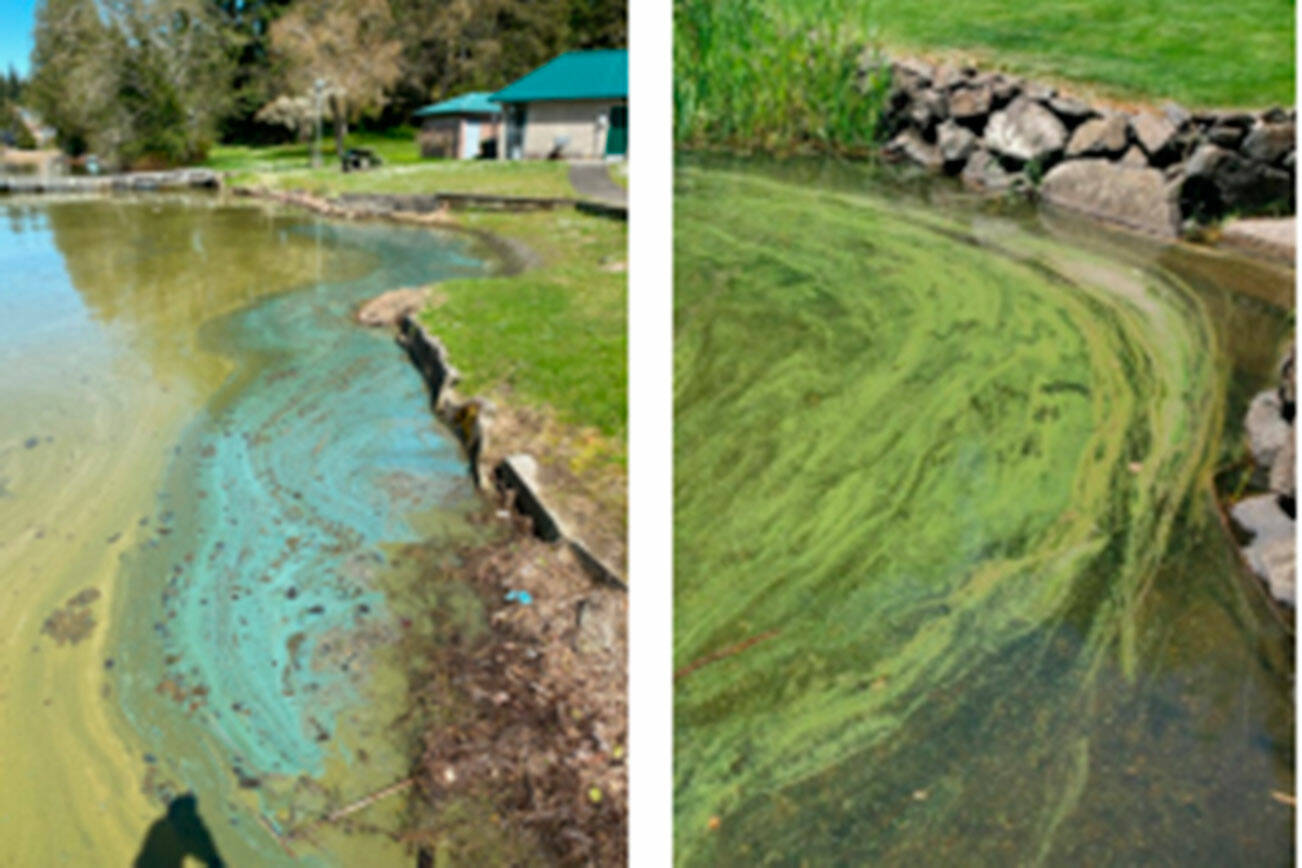While folks are starting to take advantage of the warm weather, it’s important to be aware of potential health risks when you head out to your favorite swimming beach or lake.
The Kitsap Public Health District’s Water Pollution Identification & Correction team visits popular swimming destinations to check for fecal bacteria, toxic blue-green algae and other hazards that can make people sick.
When there are high levels of fecal bacteria or blooms of cyanobacteria present, KPHD issues advisories or warnings to let the public know to stay out of the water, a county news release states.
When people get sick after swimming, fecal pollution — poop in the water — is often the cause. Fecal pollution can carry harmful bacteria (such as E. coli), viruses (such as norovirus), and parasites (such as giardia).
The PIC team collects water samples from late May through September. Popular swimming areas, including Horseshoe, Island, Kitsap, Long and Wildcat lakes, and several saltwater beaches are checked every week, per the release. Other swimming areas are checked monthly.
During a no-contact advisory, people are advised to not wade or swim in the water, and to avoid other activities that could get water into their mouth or eyes. If you do touch the water, wash your skin thoroughly with soap and clean water.
Fecal pollution can come from people, pets, or wildlife.
Blue-green algae are tiny organisms found in all types of water. In warm, nutrient-rich water, cyanobacteria grow quickly and sometimes create colorful blooms. At high levels, these “cyanotoxins” can kill animals.
When a bloom is spotted, environmental specialists collect water and use a microscope to look for types of cyanobacteria that are known to produce toxins. If they are present, a warning is issued for the entire lake.
KPHD already issued a warning for a cyanobacteria bloom at Kitsap Lake in late April.
Stay out of the water and contact KPHD if you notice:
• A bloom in the water. Blooms can make a lake look green and cloudy.
• Green, blue, or white scum, foam, or matting may form on the water’s surface, and may look like floating paint.
• Large numbers of dead fish.
• A sudden or unexplained sickness or death of an animal that has just drank or swam in lake water.
• If someone enters the water and experiences skin rash, dizziness or weakness, respiratory allergy, abdominal pain, diarrhea, or vomiting.
Call 360-728-2235 or submit a report at kitsappublichealth.org/concern.


